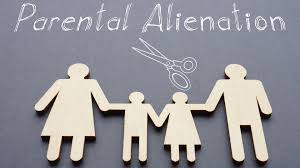Parental Alienation
Parental alienation is a complex and emotionally charged issue that occurs when one parent intentionally undermines or damages the child’s relationship with the other parent. This can have profound effects on both the child and the targeted parent, leading to long-term psychological and emotional consequences.
What is Parental Alienation?
Parental alienation involves a series of behaviors by one parent to manipulate and influence the child’s perception of the other parent. These behaviors can include badmouthing the other parent, limiting contact, creating a sense of fear or distrust, and even fabricating negative experiences. The goal is to turn the child against the other parent, often to gain control or advantage in custody disputes.
Signs of Parental Alienation
Negative Talk: The child begins to speak negatively about the targeted parent, often echoing the alienating parent’s sentiments.
Unjustified Rejection: The child shows unwarranted hostility or rejection toward the targeted parent without valid reasons.
Lack of Guilt: The child exhibits no guilt or remorse about treating the targeted parent poorly.
Excessive Support: The child appears to support the alienating parent excessively, even in matters that do not concern them.
Impact on Children
Parental alienation can have severe emotional and psychological effects on children, including:
Confusion and Distress: Being caught in the middle of parental conflict can lead to confusion, stress, and emotional turmoil for the child.
Damaged Relationships: The child may lose out on a healthy and loving relationship with the targeted parent.
Emotional Scarring: Long-term emotional and psychological issues, such as anxiety, depression, and low self-esteem, can result from the manipulation.
Behavioral Problems: Children subjected to parental alienation may exhibit behavioral issues, such as aggression, withdrawal, or difficulty forming relationships.
Impact on Parents
For the targeted parent, parental alienation can be a heartbreaking and frustrating experience. It can lead to:
Emotional Pain: The alienated parent may suffer from significant emotional distress due to the loss of a meaningful relationship with their child.
Legal Challenges: Proving parental alienation in court can be difficult, and the alienated parent may face legal battles to maintain or regain custody and visitation rights.
Isolation: The alienated parent may feel isolated and helpless, as they struggle to counteract the negative influence of the alienating parent.
Addressing Parental Alienation
Legal Intervention: Courts can intervene in cases of parental alienation, implementing custody arrangements that protect the child’s best interests and ensure a fair relationship with both parents.
Therapeutic Support: Therapy for both the child and parents can help address the emotional and psychological damage caused by parental alienation.
Education and Awareness: Raising awareness about the issue can help prevent parental alienation and promote healthier co-parenting practices.
Parental alienation is a serious issue that can have lasting effects on children and families. Understanding the signs, impact, and ways to address it is crucial for fostering healthier relationships and ensuring the well-being of all parties involved. By promoting awareness and intervention, we can help protect children from the harmful effects of parental alienation and support parents in maintaining positive and loving relationships with their children.
FAQs
1. What is parental alienation?
It occurs when one parent undermines the child’s relationship with the other parent, often through negative comments, manipulation, or limiting contact. This leads to the child distancing themselves from or rejecting the alienated parent without justifiable cause.
2. How can I tell if my child is being alienated?
Signs in children include sudden rejection of one parent, speaking negatively about the rejected parent without valid reasons, refusal to visit the alienated parent, and expressing loyalty conflicts between parents.
3. What causes parental alienation?
It can be caused by one parent’s intentional or unintentional actions, including badmouthing the other parent, making the child feel guilty about spending time with the other parent, or using the child to relay messages or manipulate the co-parenting situation.
4. How does parental alienation affect children?
Children affected may experience emotional distress, including anxiety, depression, confusion, low self-esteem, and difficulty with relationships in the future. They may also struggle with feelings of loyalty conflicts, torn between both parents.
5. Can parental alienation be stopped?
Yes, parental alienation can be addressed through therapy, family counseling, and improving communication between parents. In some cases, legal intervention may be necessary to adjust custody arrangements or protect the child’s relationship with both parents.


Leave a Reply